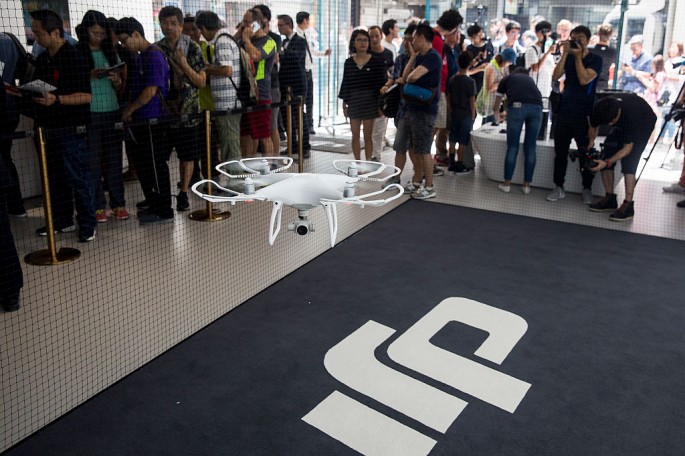The rapid growth of China's drone industry has driven small start-ups to lead the production, sales and technological innovation of consumer drones in the global market, according to industry leaders on Thursday, Oct. 20.
A report by the Global Times quoted experts as saying that advanced technologies were the result of the boom in the consumer drone industry that made the devices available to people and paved the way for favorable policies for startups and innovation in China.
"I think consumer drones are one of the rare China-made products that, we can really say, are dominating the global market," Wang Fan, public relations director of DJI Innovation Technology Co, told the Global Times.
DJI, a company based in Shenzhen was cited as one of the fast-growing firm in the Chinese drone industry and a leading player in the global market.
Wang said that DJI was once a small startup that has now grown to become one of the world's largest consumer drone producers, whose global sales reached 6 billion yuan ($890 million) in 2015, with nearly 80 percent of the sales coming from overseas markets.
About 45 percent of DJI's global sales came from the U.S., according to Wang, adding that about 400 Apple stores will have their products in the future.
"We are actually a Chinese company that started to thrive overseas first, and then 'entered' the Chinese market," Wang said.
However, other than DJI, several other Chinese drone markets are also making it in the global market, the report said.
German industry market research company Drone Industry Insights report showed that in the third quarter of this year, five Chinese companies were included in the top 10 of the Top 20 Drone Company Ranking, which included tech giant Xiaomi and Zero Zero Robotics, a tech firm based in Beijing.
Zerotech, a start-up in Beijing that produces pocket selfie drones, is one of the companies that made it to the global market as its sales reach 50,000 globally and its products were sold on Amazon.
Ke Yubao, executive secretary-general of the Aircraft Owners and Pilots Association, an group affiliated with the Civil Aviation Administration of China, said that China is now the world's largest producer of consumer drone, as 70 percent of the total global production of drones in 2015, was contributed by China.
Ke said that innovation, low cost and good quality have contributed to the sales success of Chinese companies in the market.
"If the drone is too hard to operate or too expensive to afford, then no one would buy it," Wang said. "If we are just talking about technology, there are many companies in the U.S., Europe, South Korea and Japan that can do it, but their costs would be too high," he added.
Further, Wang said that the favorable environment for innovative tech start-ups in China, especially the advanced infrastructure in Shenzhen, and large number of high-tech workers have also contributed to the success.
China's vast market may also have helped the industry, as the consumer drone market in China has reached about 800 million yuan in sales in 2015, according to a report by iiMedia. On the other hand, U.S. market researcher Business Insider Intelligence said that more than $8 billion yuan worth of drones were sold globally in 2015.
iiMedia report estimated that the drone sales in China could reach 24 billion yuan by 2019, while the Business Insider Intelligence report expects the global market sales to reach $12 billion in 2021.
Chinese companies however, are seen to face competition from many big tech companies and to lead in the industry, they have to continue to innovate, Hu Yiqiang, an industry analyst, said.
"The market for the 'drone + camera' model is not big enough . . . it is imperative for Chinese companies to actively expand the market and continue with the 'drone+' strategy in other areas," Hu said.



























